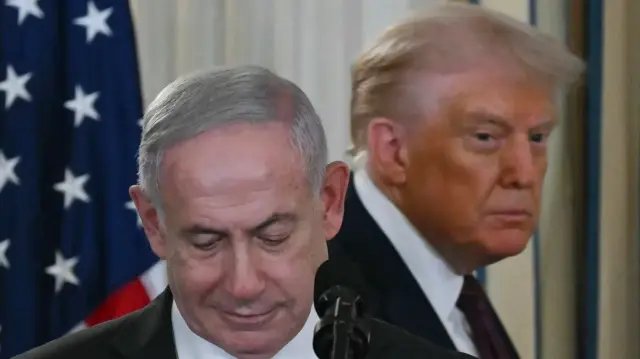Is Trump backing Netanyahu into a corner?

On October 21, forty-six of the forty-seven Democratic senators sent a letter to President Trump, urging him to maintain his firm stance against Israel’s efforts to annex parts of the West Bank. In the letter, Senate Democrats wrote, “We are writing to encourage you to take steps to preserve the viability of the two-state solution and the success of the Abraham Accords.” The senators reaffirmed their long-standing support for a negotiated “two-state solution” and lasting peace, stressing that they oppose any Israeli move—whether annexation or settlement expansion—that prevents the establishment of a Palestinian state.
The only Democrat who did not sign the letter was Senator John Fetterman, a staunch supporter of Netanyahu. On October 22, Fetterman appeared on Fox News with Sean Hannity, accusing his own party of betraying Israel. Expressing pride in standing by Israel, he said, “I’ll vote for anything that supports Israel—military, financial, intelligence, whatever it takes.” Having become a vocal defender of Israel’s falsehoods regarding the genocide in Gaza, Fetterman now finds himself increasingly alienated, even among his own voter base.
On October 22, the Israeli parliament (Knesset) held a preliminary vote on the annexation of the West Bank. The bill’s passage depends on the support of Netanyahu and his Likud party. Not wanting to confront Trump, both Netanyahu and Likud boycotted the vote. In the 120-member Knesset, 25 lawmakers voted “yes” and 24 voted “no.” Interestingly, Netanyahu described the vote—which was initiated by the opposition—as a deliberate political provocation intended to create tension during U.S. Vice President JD Vance’s visit to Israel.
Yet Netanyahu and his Likud party openly advocate the annexation of all Palestinian territories. During Netanyahu’s tenure, the number of illegal settlements in the West Bank has sharply increased. However, Trump’s clear opposition to annexation and his insistence on maintaining the ceasefire have cornered Netanyahu politically—a situation the opposition is quick to exploit.
Netanyahu understands that even Trump has limits, and that crossing them could poison the “special U.S.-Israel relationship.” Trump, meanwhile, fears that formal annexation of the West Bank would undermine his Middle East strategy, and is therefore urging Netanyahu to stay in line. Knowing that Netanyahu is itching to undermine the ceasefire, the Trump administration is keeping him on a tight leash. This explains why senior U.S. officials, including Vice President JD Vance, have been visiting Israel in succession to keep Netanyahu under control. Vance, who called the Knesset vote “a very stupid political maneuver,” was visibly irritated throughout his visit.
Vice President Vance reiterated that the Trump administration’s opposition to the annexation of the West Bank remains firm. In an interview published Thursday in Time magazine, Trump stated that annexation would not take place because he had given his word to Arab nations, adding, “If that happens, Israel will lose all U.S. support.” Although Vance emphasized that the United States would not dictate Israel’s decisions, the “ultra-Zionists” accused Netanyahu of turning Israel into a satellite state that takes orders from Washington for its own security.
Trump wants to stabilize the Middle East on his own terms so he can shift focus to his major competition with China and other global issues. Achieving this requires integrating Israel into the Middle East—not the other way around. Netanyahu, however, wants the Middle East to adapt to Israel. His annexation push and the ongoing occupation of Gaza contradict Trump’s regional strategy. That’s why Trump is essentially telling him: Be satisfied with what you have and don’t cause me more trouble.
In short, Israel seems to have hit the wall of Trump’s “America First” realism. This is a matter of prioritization. The United States wants Israel—completely dependent on American support—to fall in line with those priorities. Trump has taken a clear stance against formal annexation, but it remains uncertain whether this includes Israel’s continued expansion of illegal settlements in the West Bank. With more than 700,000 settlers already living there, a de facto annexation is already in place.
The question now is: Will Netanyahu continue expanding illegal settlements in the West Bank—and how will Trump respond?
Reklam yükleniyor...
Reklam yükleniyor...








Comments you share on our site are a valuable resource for other users. Please be respectful of different opinions and other users. Avoid using rude, aggressive, derogatory, or discriminatory language.